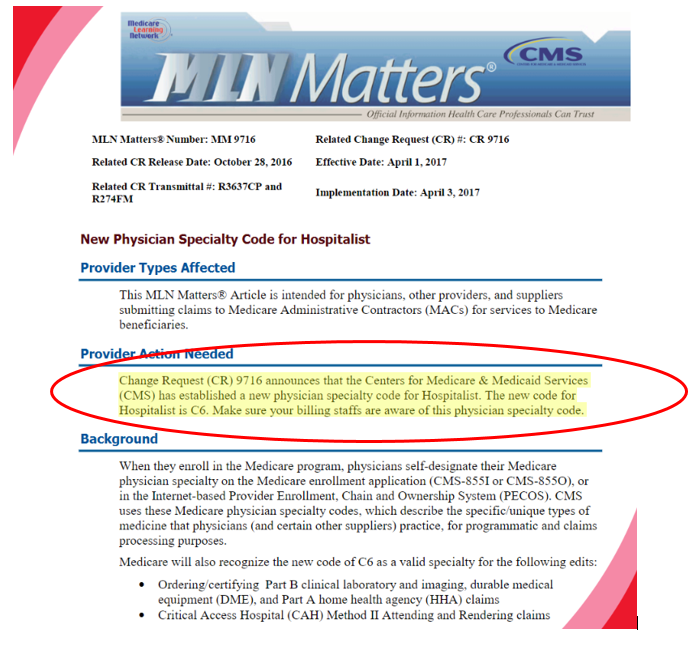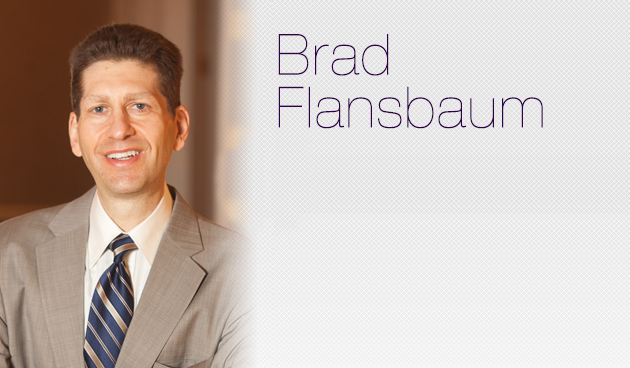First I hear the American Board of Pediatrics ordains hospital medicine as a bonafide subspecialty. Then, for the adults among us, CMS issues a hospitalist specialty code. No joke. A specialty code–go live on April 3, 2017. This has been a laborious task and years in the making. Have a lookie:

If you are scratching your head and wondering about the fuss, let me tell you the insights we will draw from the new knowledge and why it will advance our specialty. For years, hospitalists got lumped with “generalists” when CMS, researchers, or insurance companies ventured to look at physician utilization patterns and service to the healthcare system.
What was our individual and collective cost or contribution to a case? Who understood. Any interested party trying to untangle what a doc was producing during a hospital stay had only billing patterns, i.e., the percentage of inpatient codes one charged, to determine if he or she “was a hospitalist.” Clunky. We defined hospitalists by the number of 99232s you dropped, and that was far from ideal.
By self-declaring you are a hospitalist with a C6 (via the individual who submits your bills), you now tell the world who you are. Here is why this is significant:
- We are judged based on how we practice and what we utilize in the hospital. When CMS implements MIPS scoring it will no longer be an apples to oranges comparison with other FP or IM docs and payers will be able to determine whether your resource use is commensurate with the type of work you do. [TRANSLATION: THIS IS DESIRABLE IF YOU WANT TO BE PAID ACCURATELY!]
- Researchers will now be equipped to look at CMS data and quickly determine where we engaged in the system and our outcomes. We will learn more about our field.
- As global and episode payments, disease groupers, and ACOs and bundling become more preeminent (and especially alternative payment models, APMs), we can demonstrate our value in the endeavor by identifying what we manage versus other specialists in the same tract.
- We self-identify ourselves with the C6 code. We are unlikely to see gaming of this code as declaring yourself a hospitalist (or not) will not disadvantage anyone but the doc themselves. The designation will bring about more specificity in tracking practitioners. How full-time clinicians consuming only a portion of their time (40-60%) in inpatient care represent will be unknown. They will likely be a minority of docs, however. In any event, the sensitivity of the code will be uncertain but, again, not the specificity.
If you are thinking, “wait, now people will finger us, and we cannot hide in the shadows.” Precisely. You have to ask yourself what kind of world you want to live in. You can cut it a thousand ways, but we will be in a much better position to pivot in the system with the upweighted precision in measurement a specialty code commands.
This is a big win for our field, and many SHMers and staff warrant accolades for making this happen. Accomplishing this task shows how far we have come as a specialty. Of course, we have to thank CMS as well for doing it!



Leave A Comment